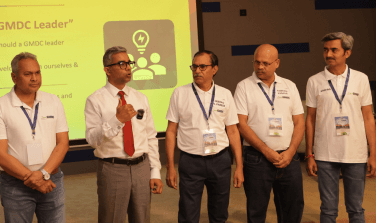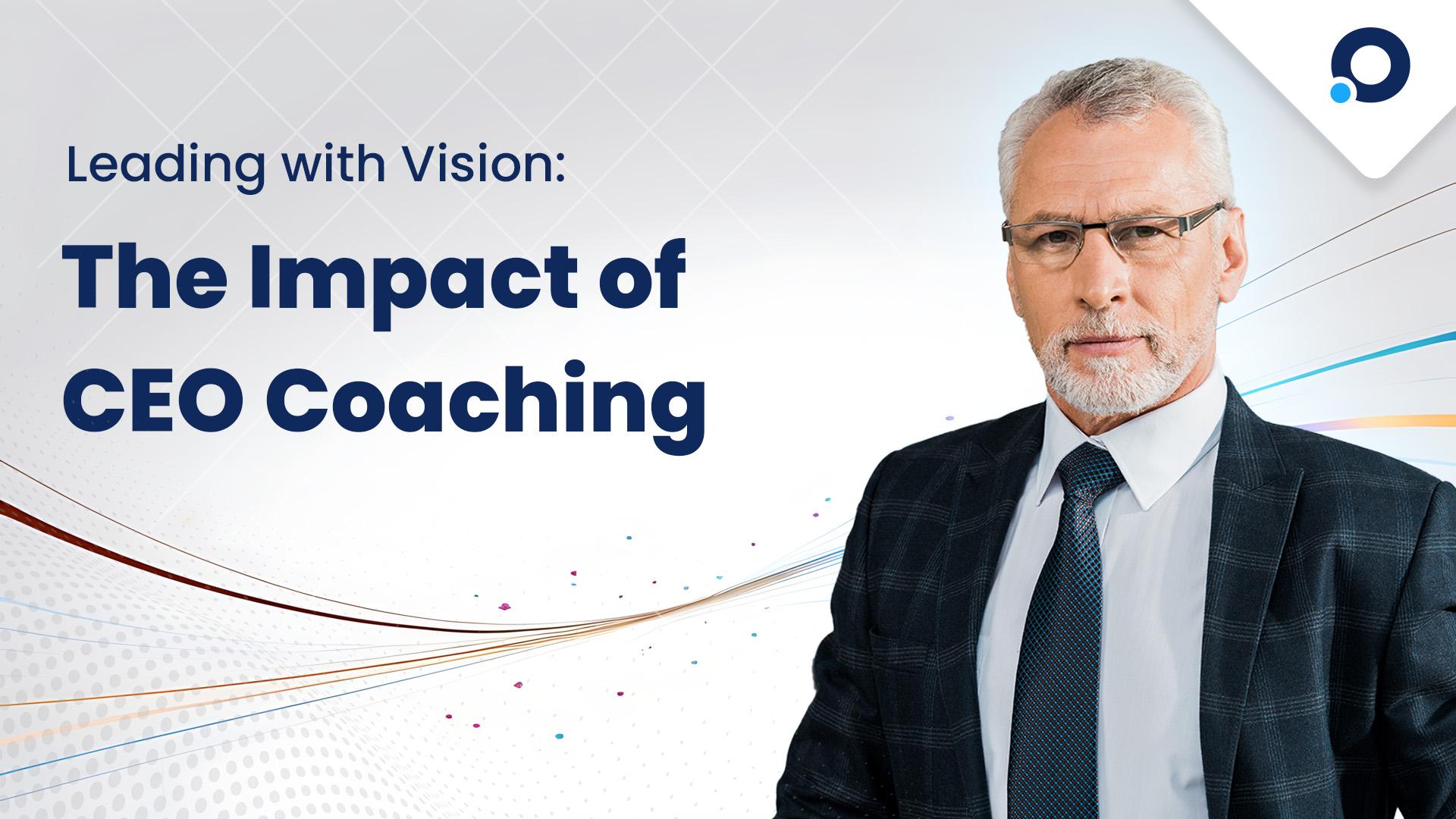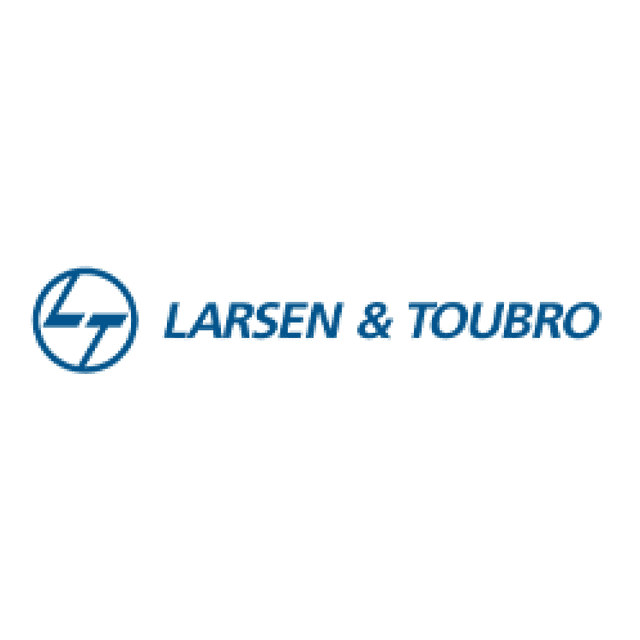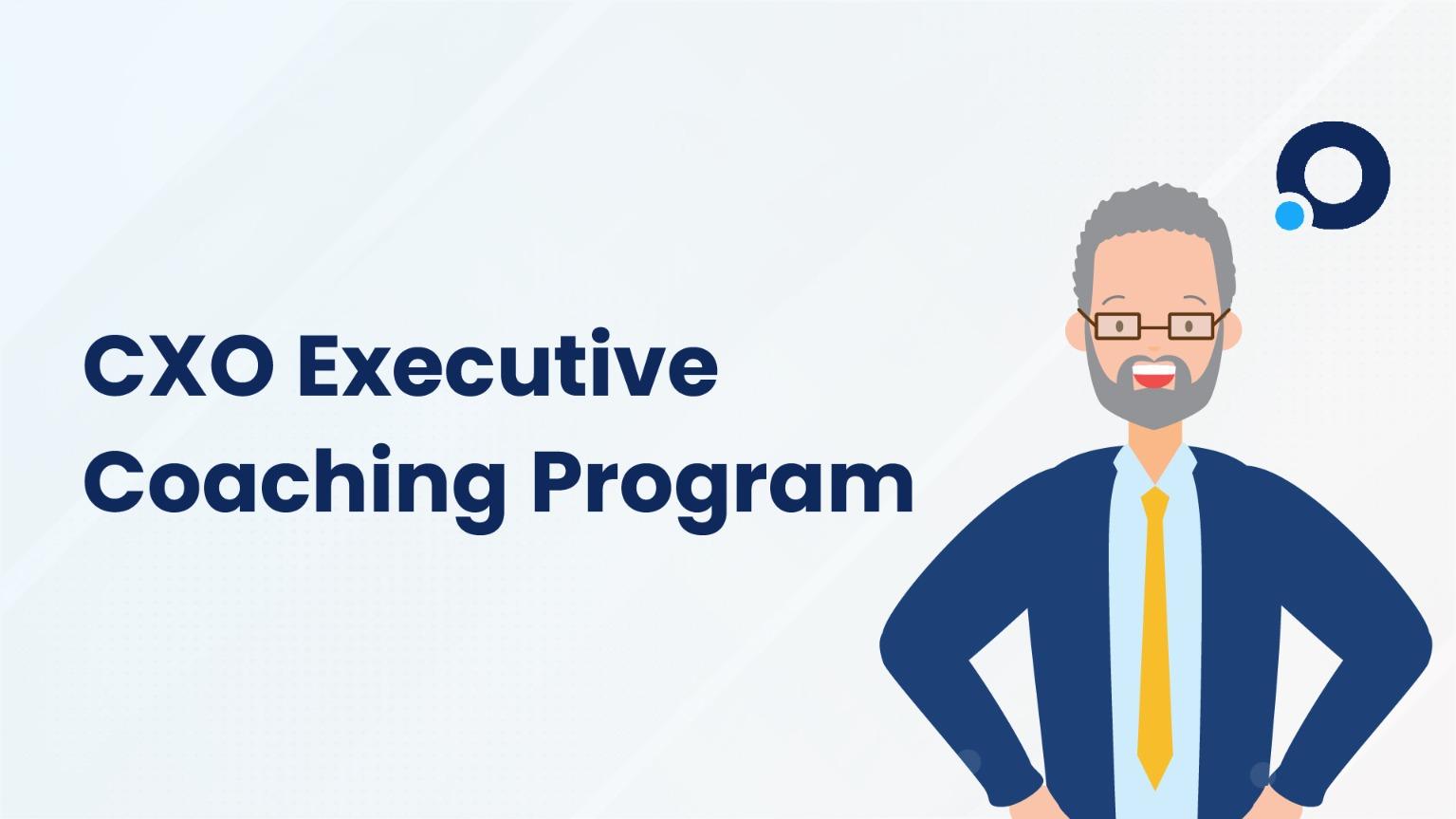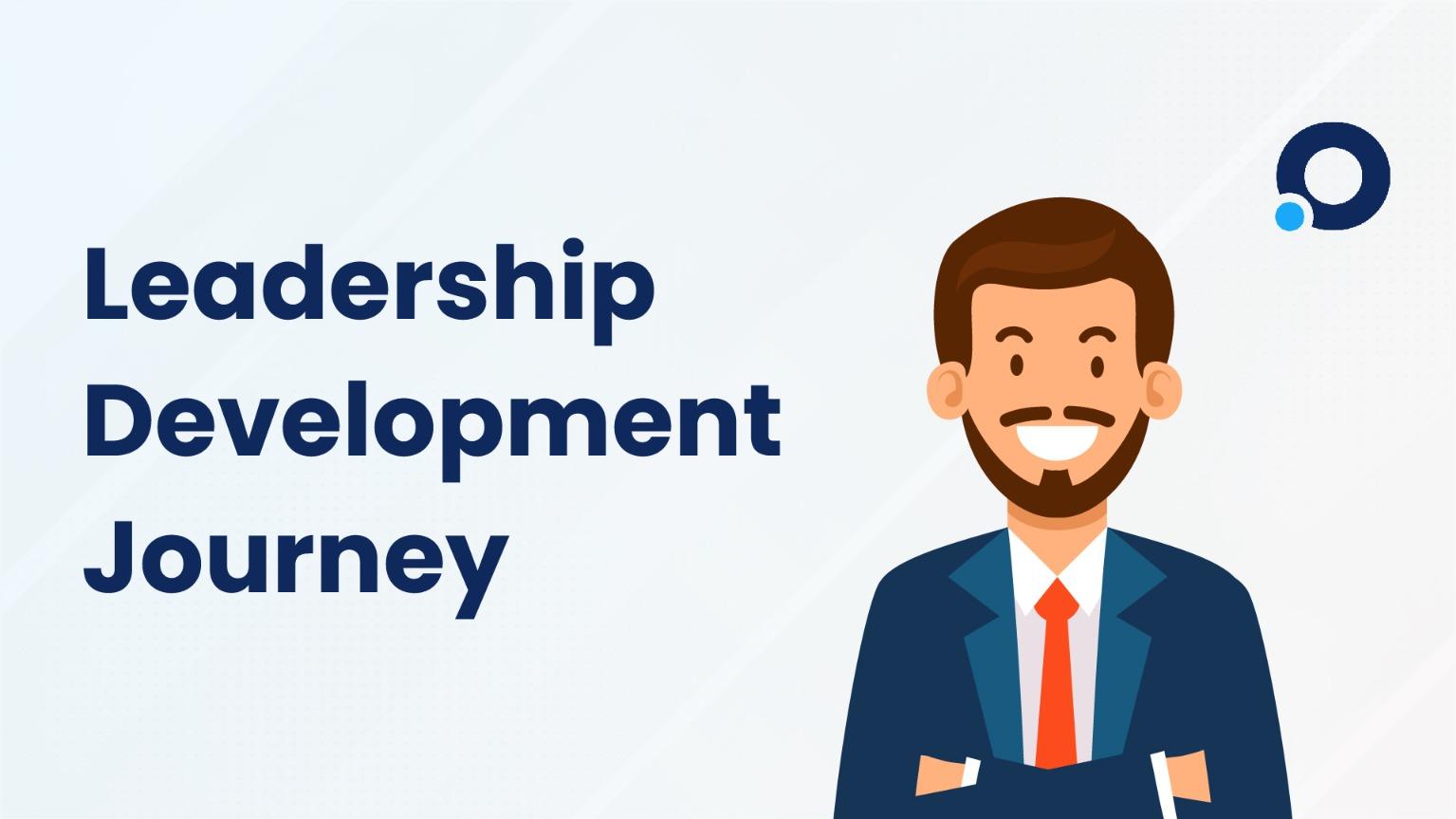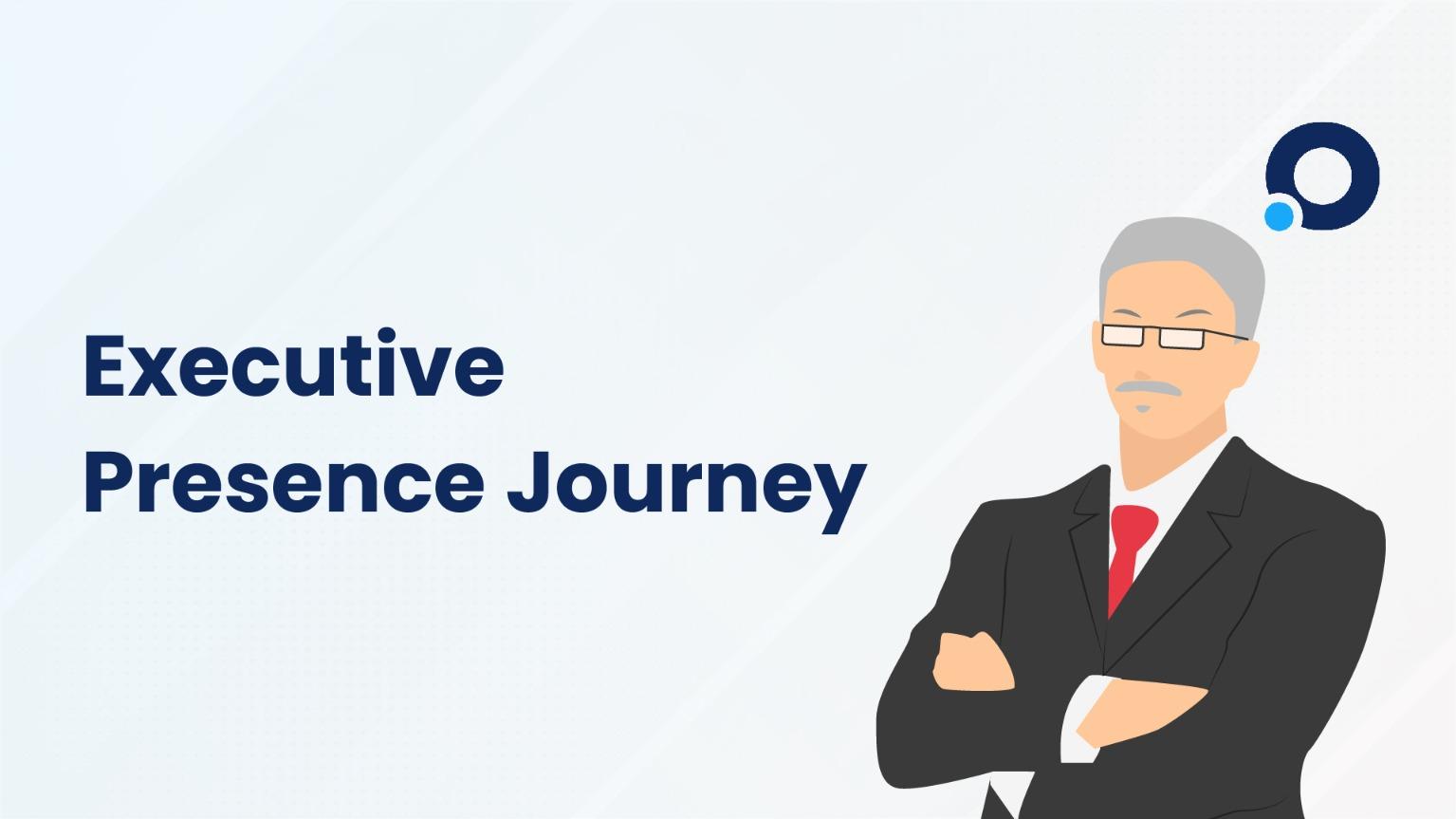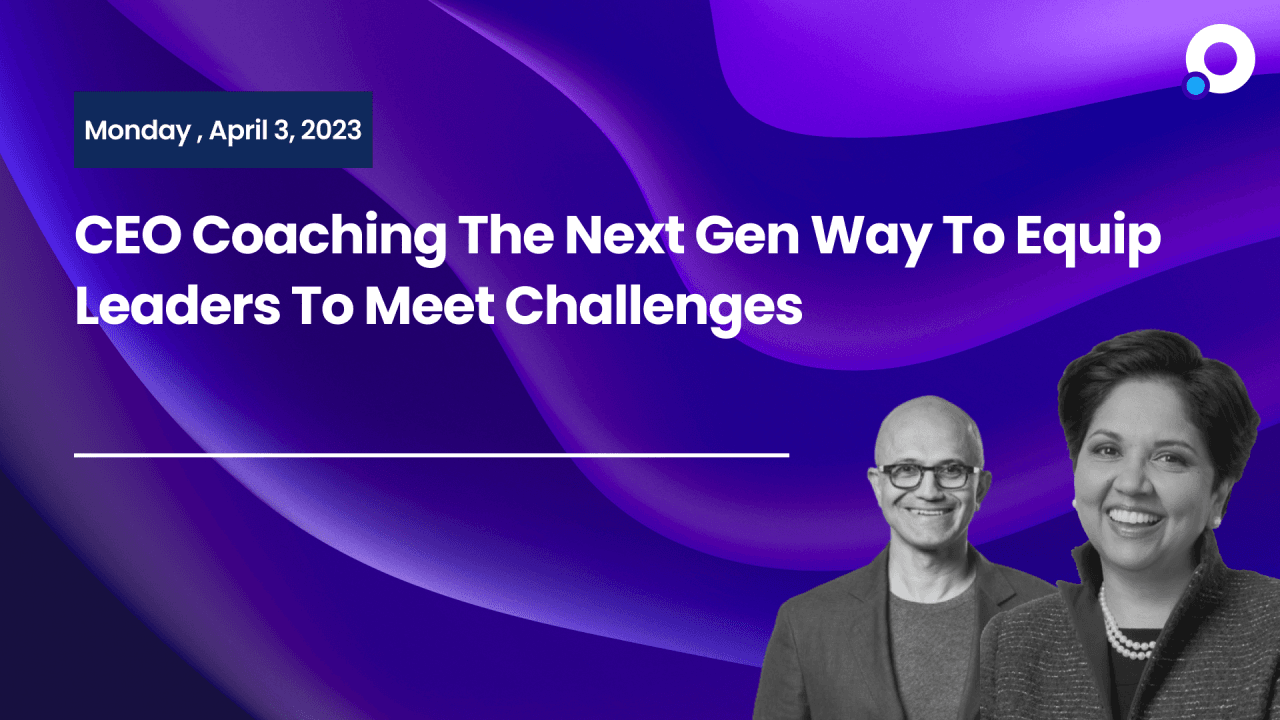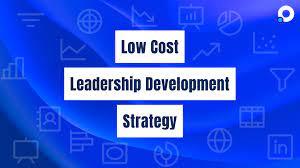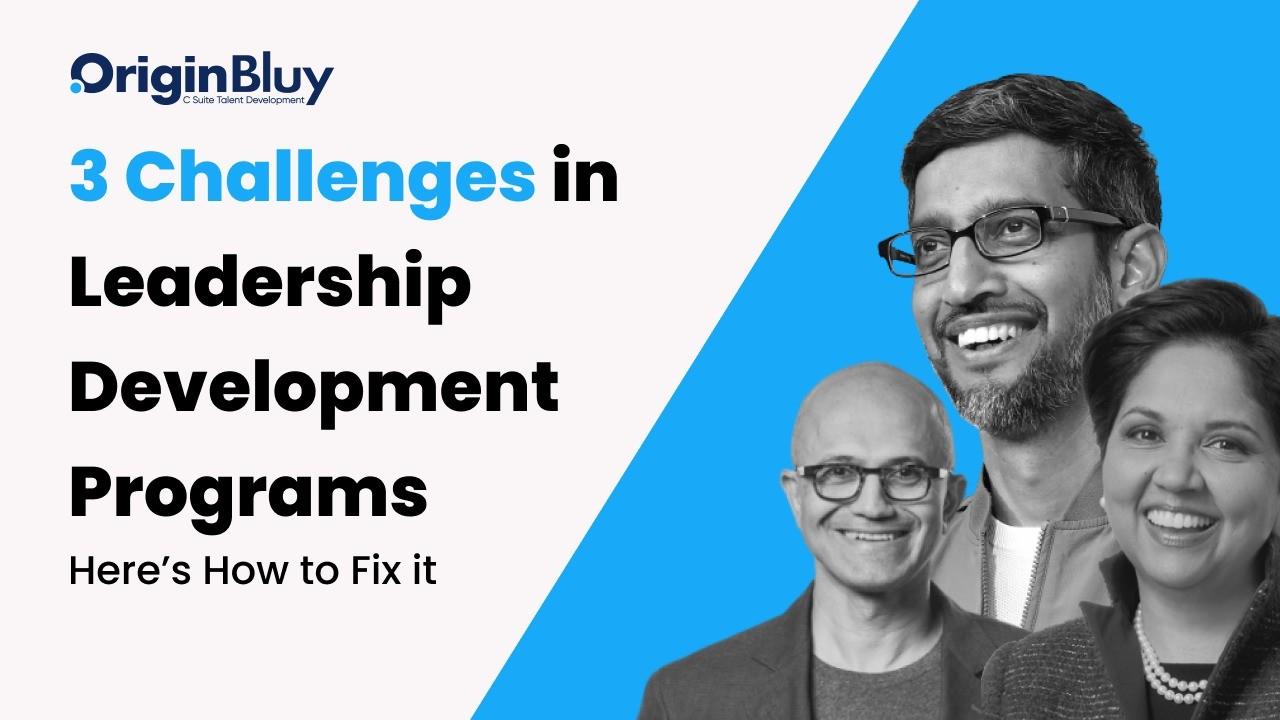Imagine standing at the peak of a mountain alone. The view is breathtaking, but the silence is overwhelming. This scenario mirrors the experience of many CEOs: at the top of their industries, yet isolated in their roles.
A staggering 60% of CEOs report feeling a sense of loneliness in their positions, with two-thirds of them admitting that this isolation negatively impacts their performance. This isolation isn't just a personal challenge; it represents a broader issue that can affect the entire organization's direction and success.
Enter the world of CEO coaching, a dynamic and personalized approach designed to address the unique challenges faced by those at the helm of today’s businesses. CEO coaching goes beyond traditional mentorship; it's a partnership that fosters growth, provides strategic insights, and breaks through isolation by offering a confidential sounding board for the most complex decisions.
Today we have decided to introduce you to CEO coaching and how it can help unlock your leadership potential, drive organizational success, and navigate the complexities of the modern business landscape.
What is CEO Coaching
CEO coaching is a personalized and strategic partnership that focuses on enhancing the leadership abilities, strategic thinking, and overall effectiveness of CEOs. It involves working one-on-one with a seasoned coach who has a deep understanding of the complexities and challenges unique to leading an organization. This coaching relationship is built on trust, confidentiality, and a commitment to personal and professional development.
At its core, CEO coaching aims to develop the leader's capabilities to drive organizational success, navigate business challenges, and achieve personal growth goals. It is a bespoke process, tailored to the specific needs, challenges, and objectives of the individual leader. Through regular sessions, CEOs receive guidance, feedback, and support in various areas, including strategic planning, decision-making, team leadership, emotional intelligence, and work-life balance.
How does CEO Coaching Work?
CEO coaching operates through a structured yet flexible framework tailored to meet the unique needs and goals of each leader. This personalized approach ensures that the coaching engagement is highly relevant and impactful for the CEO.
Here's an elaboration on how CEO coaching works in practice:
Establishing the Foundation
The process begins with a comprehensive assessment phase, where the coach and CEO collaboratively define the scope of the coaching relationship. This includes identifying the CEO's goals, challenges, strengths, and areas for development. Tools such as 360-degree feedback, personality assessments, and performance data may be utilized to gain insights into the CEO's leadership style and effectiveness.
Goal Setting
Together, the CEO and coach set SMART (specific, measurable, achievable, relevant, and time-bound) goals that align with both the CEO's personal aspirations and the strategic objectives of the organization. These goals serve as the north star for the coaching engagement, guiding the focus of the sessions and ensuring that they are directed towards tangible outcomes.
Customized Coaching Sessions

Regular coaching sessions, which can be conducted in person or virtually, form the core of the CEO coaching process. The coach uses a range of techniques, including questioning, active listening, and feedback, to challenge the CEO's assumptions, broaden their perspective, and foster problem-solving skills. The content of these sessions varies widely, depending on the CEO's goals and the current challenges they face.
Action Planning and Implementation
A critical component of CEO coaching is the translation of insights and strategies into actionable plans. After each session, the CEO is encouraged to apply what they have learned in their day-to-day leadership practice. This might involve experimenting with new leadership approaches, implementing strategic changes, or enhancing communication within the organization.
Accountability and Support
The coach provides a supportive and accountable relationship, encouraging the CEO to stay committed to their development goals and to take consistent action towards achieving them. Regular check-ins help maintain momentum and allow for adjustments to the coaching plan as needed, based on evolving goals or challenges.
Evaluation and Reflection
Throughout the coaching engagement, the coach and CEO regularly review progress against the established goals. This evaluation process is critical for measuring the impact of the coaching and reflecting on the learning and growth that have occurred. It also allows for the change of goals and strategies as the CEO evolves and as new challenges emerge.
Continuous Growth
CEO coaching is often seen as a journey rather than a destination. As leaders achieve their initial goals, new areas for development may be identified, leading to ongoing or subsequent coaching engagements. The aim is to foster a mindset of continuous improvement and lifelong learning.
In essence, CEO coaching works by providing a structured yet personalized framework that enables CEOs to explore their leadership challenges and opportunities, develop new strategies for success, and implement practical solutions that lead to significant professional and personal growth.
Benefits of CEO Coaching
CEO coaching delivers a multitude of benefits that can transform leaders and their organizations. These benefits span personal development, leadership effectiveness, strategic clarity, and organizational impact. Here’s a deeper look into the advantages of engaging in CEO coaching:
Accelerated Personal and Professional Growth
CEO coaching catalyzes a leader’s growth trajectory by providing personalized insights and strategies tailored to their unique challenges and goals. This one-on-one guidance helps CEOs quickly identify and leverage their strengths, address their weaknesses, and develop new competencies crucial for effective leadership.
The reflective nature of the coaching relationship encourages self-awareness, a fundamental element of personal development. This growth is not just personal; it directly translates into professional capabilities, enabling leaders to navigate their roles more effectively and drive organizational success.
Strategic Clarity and Execution
A key benefit of CEO coaching is the enhancement of strategic thinking and execution. Coaches work with CEOs to refine their vision for the organization, align it with actionable strategies, and ensure that these plans are effectively implemented. This process involves critical analysis, scenario planning, and the development of a clear roadmap that considers potential obstacles and opportunities.
With a coach’s support, leaders can maintain a strategic focus, prioritize initiatives that offer the greatest impact, and dynamically adjust plans in response to changing market conditions. This strategic clarity leads to more deliberate decision-making and focused efforts that propel the organization forward.
Enhanced Decision-Making Skills
Decision-making is at the heart of leadership. CEO coaching significantly improves a leader's ability to make complex decisions by providing frameworks for critical thinking, risk assessment, and stakeholder analysis. Coaches challenge leaders to consider multiple perspectives and potential outcomes, fostering a balanced approach to decision-making.
This skill is particularly valuable in uncertain or high-stakes situations where the consequences of decisions are significant. Improved decision-making not only benefits the CEO but also sets a precedent for a more thoughtful and rigorous approach throughout the organization.
Building a Strong Organizational Culture
The influence of a CEO on organizational culture cannot be overstated. Coaching assists leaders in understanding their role in shaping culture and provides them with the tools to build an environment that reflects their values and drives performance. This involves developing effective communication strategies, setting clear expectations, and leading by example.
A strong culture enhances employee engagement, attracts top talent, and fosters loyalty, contributing to the overall health and success of the organization. CEO coaching supports the intentional cultivation of these cultural elements, ensuring they are aligned with the organization’s mission and goals.
Leadership Resilience and Adaptability
In today’s ever-changing business landscape, resilience and adaptability are key qualities for any leader. CEO coaching equips leaders with the mindset and skills needed to navigate challenges, overcome setbacks, and seize opportunities for innovation. Coaches help CEOs build emotional resilience, enabling them to manage stress, maintain perspective, and lead with confidence, even under pressure.
Furthermore, coaching encourages a mindset of continuous learning and adaptability, preparing leaders to pivot strategies, embrace new technologies, and lead their organizations through transformation. This resilience not only benefits the individual leader but also instills a sense of stability and agility within the organization, ensuring it can thrive in the face of change.
In summary, the benefits of CEO coaching are far-reaching, impacting not only the individual leader but also the broader organization. By fostering growth, enhancing leadership effectiveness, and building strategic acumen, CEO coaching prepares leaders to successfully guide their organizations into the future.
Difference Between CEO Coaching and Executive Coaching
The distinction between CEO coaching and executive coaching, while subtle, is significant, touching upon the unique roles, challenges, and expectations associated with each coaching scenario.
Understanding these differences is crucial for organizations and individuals seeking the right type of coaching support. Here are the key differences elaborated:
1. Scope of Influence and Decision-Making
CEO coaching focuses on individuals who hold the top position within an organization and therefore have the ultimate responsibility for its success or failure. The scope of their decision-making and influence spans the entire organization and its stakeholders, including the board of directors, investors, and the broader community. This level of responsibility requires coaching that addresses the complexities of leading an entire organization, from strategic vision and culture to external relations and organizational legacy.
In contrast, executive coaching is aimed at senior leaders and managers who may have significant responsibilities but operate within a narrower scope. Their decision-making typically impacts specific departments, teams, or projects. Executive coaching helps these leaders to excel in their roles, manage their teams effectively, and contribute to the organization's objectives within their sphere of influence.
2. Strategic vs. Operational Focus
CEO coaching often has a strategic focus, helping leaders to define and refine the organization's vision, align strategies with goals, and navigate high-level challenges and opportunities. The coaching sessions are designed to enhance the CEO’s ability to think globally about the business, anticipate future trends, and make decisions that will impact the organization in the long term.
Executive coaching, while it can also cover strategic topics, often has a more operational or functional focus. It aims to develop the executive's leadership skills, improve team dynamics, and enhance performance within specific areas of the business. The emphasis is on maximizing the leader’s effectiveness and impact in their current role and preparing them for future leadership opportunities.
3. Dealing with Isolation and Visibility
CEOs occupy a unique position that can be isolating, given the breadth of their responsibilities and the limited number of peers within the organization. CEO coaching addresses this isolation by providing a confidential and supportive space where CEOs can discuss challenges, explore ideas, and receive unbiased feedback. The coach acts as a trusted advisor who understands the nuances of leading at the highest level.
Executive coaching, on the other hand, may not focus as much on the aspect of isolation. While it provides a supportive environment for growth and development, the challenges addressed are more likely related to leadership within a team or department, interpersonal dynamics, and advancing within the organizational hierarchy.
4. Relationship with the Board and Stakeholders
A distinctive element of CEO coaching is preparing and supporting the CEO in their interactions with the board of directors and external stakeholders. This includes navigating board dynamics, fulfilling governance responsibilities, and representing the organization in public and private forums. The coach may help the CEO develop strategies for effective communication, negotiation, and stakeholder engagement.
Executive coaching is less likely to focus on board relations, given that few executives below the CEO level have direct involvement with the board. Instead, the coaching might concentrate on internal stakeholder management, influencing skills, and building cross-functional relationships within the organization.
5. Legacy and Succession Planning
Finally, CEO coaching often includes a focus on legacy and succession planning. CEOs must consider not only how to lead effectively today but also how to leave the organization in a strong position for the future. This can involve developing internal talent, setting up succession plans, and ensuring that the organization’s strategy and culture are sustainable beyond their tenure.
While executive coaching may touch upon career progression and development, the emphasis on legacy is unique to the coaching of CEOs, reflecting the broader impact of their leadership on the organization’s future.
While both CEO coaching and executive coaching aim to enhance leadership effectiveness, the differences in scope, focus, and challenges addressed reflect the unique roles and responsibilities of CEOs versus other executives within an organization.
How to Find the Right CEO Coach
Selecting the right CEO coach is a pivotal decision that can profoundly influence your leadership journey and organizational impact. To ensure you partner with a coach who aligns with your aspirations and challenges, consider the following elaborated points:
Clarify Your Goals and Needs
Start by introspecting on what you hope to achieve through coaching. Are you aiming to enhance strategic leadership, navigate organizational change, improve decision-making, or cultivate a stronger executive presence?
Identifying specific goals will not only help in finding a coach with the right expertise but also enable you to communicate your expectations clearly. Reflect on your current challenges, leadership style, and areas for growth. This clarity will serve as a foundation for a focused and fruitful coaching relationship.
Research and Evaluate Expertise
Look for coaches who have a proven track record of working with CEOs and senior leaders. This includes not just general coaching experience but specific expertise relevant to your industry, the scale of operation, or the particular challenges you're facing.
A coach with experience in navigating company mergers, for example, would be invaluable if your organization is considering acquisitions. Investigate their professional background, education, and any coaching certifications they hold. This research will help ensure their credibility and capability to address complex executive issues.
Assess Coaching Style and Philosophy

Every coach has a unique approach to coaching, influenced by their beliefs, methodologies, and personality. Some may focus on actionable strategies and goal-setting, while others might prioritize self-discovery and reflection.
Engage in preliminary discussions or trial sessions to gauge whether their style resonates with your learning preferences and if their coaching philosophy aligns with your values and leadership vision. Compatibility in this area is critical for establishing a trusting and impactful coaching relationship.
Check for Chemistry and Compatibility
The effectiveness of a coaching relationship heavily relies on the chemistry between the coach and the coachee. It’s essential that you feel comfortable and connected with your coach, enabling open and honest communication.
Consider whether you can trust this person with your vulnerabilities and if you’re inspired by their insights and guidance. Initial consultations can be invaluable for assessing this connection. Remember, a strong rapport is foundational to the transformative potential of the coaching engagement.
Seek References and Success Stories
Request references and look for testimonials from past clients, especially those in similar roles or industries. These insights can offer a glimpse into the coach’s impact, highlighting transformations in leadership effectiveness, strategic outcomes, and personal growth experienced by their clients.
Inquire about the challenges these clients faced and the improvements observed as a result of the coaching. Success stories can also illustrate the coach's ability to tailor their approach to individual needs, further indicating their versatility and expertise.
Understand the Investment and Logistics
Familiarize yourself with the logistical details of the coaching arrangement, including the frequency of sessions, their format (in-person vs. virtual), and the duration of the coaching relationship.
Also, consider the financial investment required and weigh it against the potential value and return on investment for yourself and your organization. A clear understanding of these aspects will help manage expectations and ensure a smooth coaching journey.
Trust Your Gut
After considering all the logical and practical factors, don't underestimate the importance of your intuition. Your gut feeling about a coach can be a powerful indicator of the potential success of the relationship.
If you feel energized, understood, and challenged in a constructive way during your initial interactions, it’s a strong sign that the coach could be a good fit for you.
By thoroughly exploring these points, you’ll be well-equipped to find a CEO coach who can significantly contribute to your leadership development and organizational success, paving the way for a fulfilling and transformative coaching experience.
Process Behind CEO Coaching
The process behind CEO coaching is meticulously designed to ensure that it addresses the unique needs, challenges, and objectives of top executives. This structured yet flexible approach enables a deep, transformative experience, fostering significant personal and professional growth. Here is an elaborate view of the process:
Step 1: Initial Assessment and Goal Setting
The CEO coaching journey typically begins with an in-depth assessment phase. This involves evaluating the CEO's current leadership style, strengths, weaknesses, and specific areas for improvement.
Based on these insights, the coach and CEO collaboratively set clear, measurable goals for the coaching engagement. These objectives are aligned with the CEO's personal aspirations and the strategic needs of the organization, ensuring that the coaching process is focused and impactful.
Step 2: Develop a Customized Coaching Plan
With a clear understanding of the goals, the coach develops a tailored coaching plan that outlines the strategies and methodologies to be used throughout the engagement. This plan is personalized to the CEO’s learning style, preferences, and the specific outcomes they wish to achieve.
It may include a mix of one-on-one coaching sessions, experiential learning activities, reading assignments, and even shadowing or mentoring opportunities. The plan is flexible and can be adjusted as needed based on the CEO’s progress and evolving needs.
Step 3: Ongoing Coaching Sessions
The core of the CEO coaching process is the ongoing, one-on-one sessions between the coach and CEO. These sessions are a safe space for reflection, learning, and strategizing. The coach uses a variety of techniques, such as questioning, active listening, feedback, and sometimes challenging the CEO’s assumptions, to facilitate insight and growth.
Topics covered can range widely, from strategic planning and decision-making to leadership presence and interpersonal dynamics. The frequency and duration of these sessions are tailored to fit the CEO’s schedule and the agreed-upon coaching plan.
Step 4: Action Learning and Application
A critical aspect of CEO coaching is the application of insights and strategies in the real world. Between coaching sessions, the CEO is encouraged to implement new approaches, test strategies, and reflect on their leadership practices.
This action learning component ensures that the CEO is not just gaining theoretical knowledge but is also developing practical skills and making tangible improvements in their leadership and the organization's performance.
Step 5: Feedback and Adjustment

Throughout the coaching engagement, both the coach and CEO regularly review progress towards the established goals. This iterative feedback loop allows for the coaching plan to be fine-tuned based on what is working well and where additional focus is needed.
Adjustments can include introducing new topics, changing the coaching methodology, or even redefining goals as the CEO grows and their needs evolve.
Step 6: Evaluation and Conclusion
As the coaching engagement nears its conclusion, the coach and CEO conduct a thorough evaluation of the progress made against the initial objectives. Successes are celebrated, and lessons learned are discussed to ensure that the CEO can sustain their growth beyond the coaching relationship.
This phase may also involve planning for future development and potentially identifying areas for ongoing self-improvement or additional coaching needs.
Step 7: Sustaining Growth
Post-coaching, the focus shifts to sustaining and building upon the growth achieved during the engagement. The CEO is equipped with tools, strategies, and a deeper self-awareness that enables continuous personal and professional development.
Many CEOs establish a long-term relationship with their coach, seeking periodic check-ins or follow-up sessions to maintain their momentum and adapt to new challenges.
This structured yet highly personalized process ensures that CEO coaching is a transformative journey, leading to significant improvements in leadership effectiveness, strategic thinking, and organizational impact.
The ROI of CEO Coaching for Your Business
Investing in CEO coaching can have a profound impact on your business, delivering significant returns that far exceed the initial financial outlay. Here are five key areas where the return on investment (ROI) from CEO coaching becomes evident:
Enhanced Leadership Effectiveness
The most direct impact of CEO coaching is on the leader's effectiveness. Through personalized guidance, CEOs enhance their strategic vision, decision-making skills, and ability to inspire and lead their teams.
Improved leadership effectiveness translates into better organizational performance, as leaders are more adept at navigating challenges, capitalizing on opportunities, and driving their teams toward shared goals.
This boost in leadership capabilities can lead to improved operational efficiency, increased productivity, and ultimately, a stronger bottom line.
Strategic Alignment and Execution
CEO coaching helps leaders refine and articulate their vision for the organization, ensuring that it is fully aligned with its strategic objectives. Coaches work with CEOs to break down this vision into actionable strategies and milestones, facilitating more effective execution.
The ability to execute strategy more effectively not only accelerates progress toward key business objectives but also enhances the organization's agility, allowing it to respond more quickly to market changes and opportunities.
This strategic alignment and execution capability can lead to increased market share, revenue growth, and competitive advantage.
Organizational Culture and Employee Engagement
A CEO's leadership style and values play a critical role in shaping the organization's culture. CEO coaching often focuses on developing leadership approaches that foster a positive, high-performing organizational culture.
This includes enhancing communication skills, building trust, and creating an environment that values continuous learning and development. A strong organizational culture boosts employee engagement, which is linked to a host of positive outcomes, including lower turnover rates, higher employee satisfaction, and improved productivity. These factors contribute to a more resilient and adaptable organization.
Innovation and Growth
By challenging assumptions, encouraging out-of-the-box thinking, and providing frameworks for strategic decision-making, CEO coaching can significantly enhance a leader's capacity for innovation.
Coaches help CEOs to cultivate a mindset that embraces change and seeks out new opportunities for growth. This increased focus on innovation can lead to the development of new products, services, and business models that drive revenue growth and ensure the organization remains relevant in a rapidly evolving marketplace.
Personal Well-being and Sustainability
The demands of leading an organization can take a toll on a CEO's personal well-being, with potential repercussions for their effectiveness and the health of the organization. CEO coaching addresses this by promoting work-life balance, stress management techniques, and resilience-building strategies.
A leader who is in a better state of personal well-being is more likely to sustain high performance over the long term, make better decisions, and maintain the energy and focus needed to lead the organization through its growth and development phases.
The ROI of CEO coaching manifests in these critical areas, each contributing to the overall health, growth, and success of the business. While some benefits are more immediately observable, others accrue over time, reinforcing the value of coaching as a long-term investment in the future of the organization.
The Future of CEO Coaching
The future of CEO coaching is poised for transformation, driven by technological advancements, evolving leadership challenges, and greater recognition of its value in driving organizational success.
Here are several key trends shaping the future of CEO coaching, complemented by the latest stats and insights:
Integration of Technology and AI
The use of technology and artificial intelligence (AI) in CEO coaching is on the rise, offering new ways to personalize coaching experiences and provide data-driven insights. AI can analyze behavioral patterns, predict leadership outcomes, and offer tailored recommendations, enhancing the effectiveness of coaching sessions.
According to a study by the International Coaching Federation (ICF), over 50% of coaching professionals anticipate that AI and machine learning will play a significant role in coaching within the next few years.
This integration of technology will enable more scalable, accessible, and customized coaching solutions.
Focus on Sustainability and Social Responsibility
There's an increasing expectation for CEOs to lead with a focus on sustainability and social responsibility. A 2023 study by Weber Shandwick found that 64% of global consumers expect CEOs to take a public stand on social and environmental issues.
CEO coaching will increasingly address how leaders can integrate these priorities into their business strategies, fostering a leadership approach that balances profit with purpose.
Coaches will support CEOs in navigating the complexities of sustainable leadership, ensuring they can drive their organizations to not only be financially successful but also socially responsible and environmentally sustainable.
Emphasis on Mental Health and Well-being

The mental health and well-being of leaders have come to the forefront, especially in the wake of the COVID-19 pandemic.
A recent survey by Korn Ferry revealed that nearly 60% of leaders reported that their roles had become more demanding in terms of mental and emotional stamina.
The future of CEO coaching will increasingly incorporate strategies to support leaders' mental health, resilience, and work-life balance. This holistic approach ensures that CEOs are equipped to manage stress effectively and lead their organizations with empathy and compassion.
Global and Cross-Cultural Leadership
As businesses continue to operate in an increasingly globalized environment, the need for cross-cultural leadership skills becomes more critical.
Future CEO coaching will place a greater emphasis on developing leaders who can navigate diverse cultural contexts, manage international teams, and lead global organizations effectively.
Coaches will offer insights and strategies for building cultural intelligence, fostering inclusive workplaces, and effectively managing the complexities of global business operations.
Lifelong Learning and Adaptability
The pace of change in the business world is accelerating, highlighting the importance of lifelong learning and adaptability for CEOs.
A report from Skillsoft (a learning platform provider) in 2023 found that 70% of learning and development professionals believe the speed of skill change is accelerating.
CEO coaching will increasingly focus on fostering a mindset of continuous learning, encouraging leaders to stay agile, curious, and open to new ideas. This adaptability is crucial for navigating the rapid technological, economic, and social changes impacting businesses today.
The future of CEO coaching is dynamic and promising, reflecting broader shifts in the business landscape, leadership priorities, and technological advancements. As the role of the CEO continues to evolve, so too will the strategies and approaches used in coaching to ensure leaders are prepared to meet the challenges of tomorrow with confidence and clarity.
Empower Your Leadership Journey: The Transformative Impact of CEO Coaching
In navigating the complexities of today’s ever-evolving business landscape, the role of a CEO has never been more challenging—or more critical. From enhancing leadership effectiveness and strategic execution to fostering a culture of innovation and responsibility, CEO coaching emerges as a pivotal tool for transformative leadership. It offers personalized insights and actionable strategies, helping leaders not only to navigate their current challenges but also to anticipate and shape the future.
The process behind CEO coaching is designed to unlock a leader's full potential, aligning personal growth with organizational success. Through a structured yet flexible approach, CEOs are equipped with the skills needed to lead with vision, drive strategic initiatives, and foster an engaging organizational culture.
As we look to the future, CEO coaching will continue to evolve, integrating technology and focusing on sustainability, mental well-being, global leadership, and lifelong learning. These developments promise to further enhance the value and impact of coaching for CEOs and their organizations.
Are you ready to transform your leadership and propel your organization forward?
Embark on a journey of personal and professional transformation that will not only elevate your leadership but also drive tangible results for your business.
Invest in your growth as a leader. Contact us to learn more about how our CEO coaching programs can help you achieve your goals and lead your organization to new heights of success.
Key Takeaways from the Blog
- CEO Coaching Enhances Leadership and Decision-Making Skills
- Strategic Execution Fueled by Personalized Coaching Plans
- Cultivating a Positive Organizational Culture Through Leadership
- The Future of CEO Coaching: Technology and Sustainability
- Investing in CEO Coaching Delivers Significant ROI






